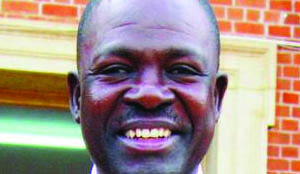JUSTICE Minister Wynter Kabimba is right and deserves support for reiterating his Government’s commitment to engaging the Church when addressing national issues.
It does not matter which specific denomination one may think of, churches in general cannot be ignored because they play an important role in shaping the affairs of society.
We must safely state that it is because of the Church’s input in nation-building that its relations with the Zambian Government have been constantly evolving.
Foremost, what must be noted is the fact that the Catholic Church, in particular, has taken its relations with the Government to a level where it has been said to be politically active in Zambia.
And some of these relations have been controversial in retrospect. For instance, at one point during the UNIP reign, church leaders came out strongly in their opposition to the Government’s proposal to introduce the teaching of Scientific Socialism in secondary schools.
The clergy, who were then comfortable with first Republican president Kenneth Kaunda’s philosophy of Humanism, strongly opposed this, calling it ‘alien’, especially that some of its teachings were considered to be anti-Christian.
Not surprising, Scientific Socialism did not take off in secondary schools and remained confined to the lecture theatres of the universities.
Apart from this aspect, however, the Zambian Government and the church could be said to have been working together in many areas of national importance.
For instance, the Catholic Church has taken a leading role in areas of education and health, both before and after Zambia’s independence.
In some instances, the momentum of the Catholic Church to build schools and educate young Zambians may be said to have slowed just after independence, especially when the Government took over some schools and started running them.
But this in no way ended the church’s involvement in the education sector as quite a number of the so-called mission schools remained under its control around the country.
In any case, some of the church-run schools were renowned for encouraging universal early education, and actually did absorb some of the best brains that later became an asset to national development.
After independence, the government of Dr Kaunda embraced universal public education, whose fundamental purpose at both the primary and secondary levels was basically to provide equal and adequate educational opportunities for all children and young people.
Because of this, Dr Kaunda and his fellow nationalist leaders who took over power joined hands with churches and effectively ensured that post-independence Zambia had an enlightened citizenry.
The same thing happened in the health sector where churches, not just the Catholic Church, continued and still do run hospitals with the help the Government which assists financially, materially and in terms of personnel.
Church leaders further speak out, in support of the Government stance, on such ‘life issues’ as abortion, gay marriage as well as condom distribution in schools and prisons which they vehemently oppose, in addition to their strong opposition to capital punishment.
So to amplify on what the Justice minister says, we can confidently say that the church and Government need each other because they essentially stand at cross-purposes, meaning both of them have been instituted by God and serve His ultimate will.
Of course the Government may be construed to be secular and, therefore, an ungodly institution governed by people, some of whom may be sinners.
However, what all people agree is that the Government has been placed on earth by God for meeting the needs of its citizens and the protection of the people, including the Church.
So to this end, we must say that Government leaders have been placed in their positions for God’s purpose, and to question their authority is to question God. That’s why Mr Kabimba is right to say that the Government will always engage the Church when addressing important national issues.







